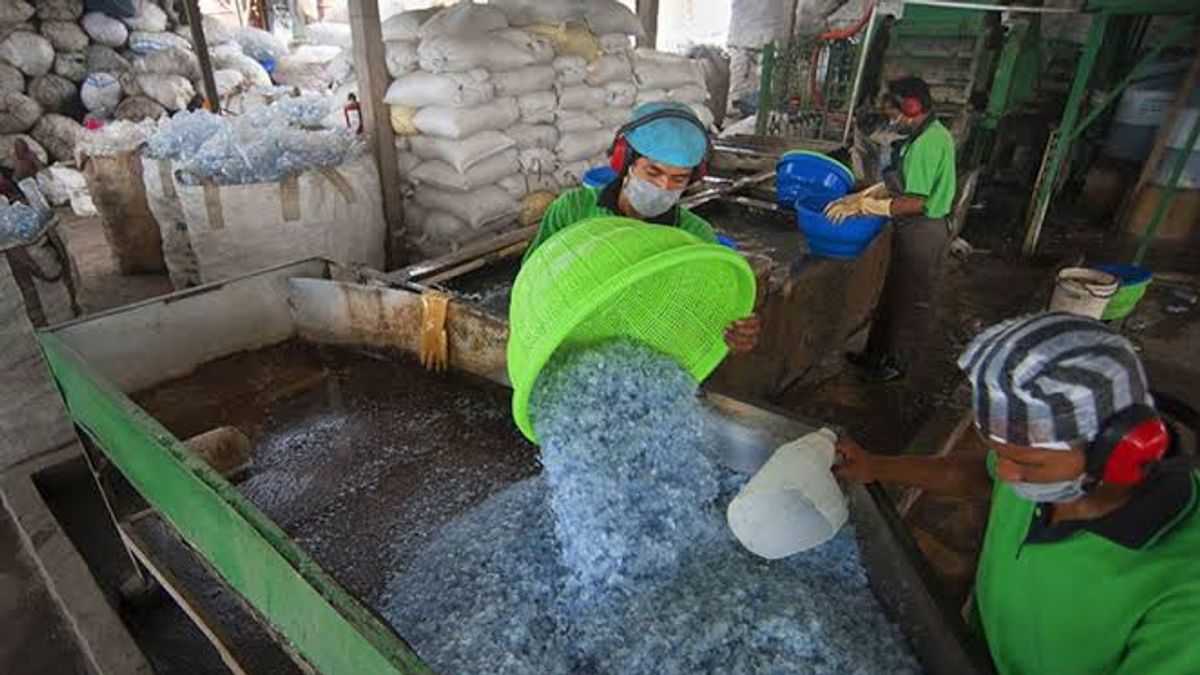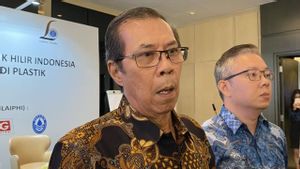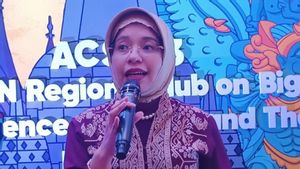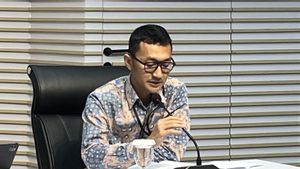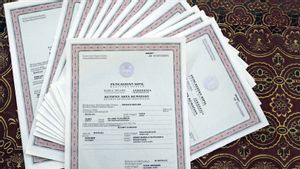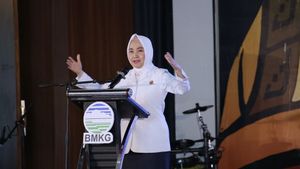JAKARTA - Circular economic policy as a strategic step to support the development of a sustainable plastic industry is being prepared by the government.
The circular economy is a circular economic system approach by maximizing the use and value of raw materials, components, and products, so as to reduce the number of remaining ingredients that are not used and disposed of to the final disposal site.
Assistant Deputy for Industrial Development of the Coordinating Ministry for Economic Affairs Eko Harjanto said that this step was aimed at reducing dependence on imports of plastic raw materials and reducing plastic waste.
The policy includes several facilities, including reducing value added tax rates (VAT) for the plastic industry that uses recycled materials and the plastic recycling industry itself.
The government will also provide fiscal incentives with percentage weights that are adjusted to the depth of the implementation of the circular economy, similar to the domestic component level locking system (TKDN).
In addition, he said the government encourages market access for green products through the procurement of government goods and services. Products that meet the standard certification of the green industry will be prioritized, providing additional incentives for companies that are committed to environmental sustainability.
Ease of financing is also the focus of this policy, where the plastic and plastic recycling industry that has obtained green industry certificates will get easier access to financing.
SEE ALSO:
"The government program in the future will focus on implementing the circular economy by recycling unused plastic materials," said Eko quoting Antara.
Citing data from the Indonesian Recycling Association, the population of plastic recycling industries in Indonesia in 2023 totals around 241 industries with an investment value of IDR 20 trillion and a production capability of 2.54 million tons per year.
Based on data from the National Waste Management Information System (SISPN) of the Ministry of Environment and Forestry, the total waste generation in 2023 in 317 districts/cities throughout Indonesia reached 35.2 million tons. A total of 63.11 percent of the waste has been managed, and the remaining 36.88 percent or about 13 million tons of waste have not been managed.
The English, Chinese, Japanese, Arabic, and French versions are automatically generated by the AI. So there may still be inaccuracies in translating, please always see Indonesian as our main language. (system supported by DigitalSiber.id)
